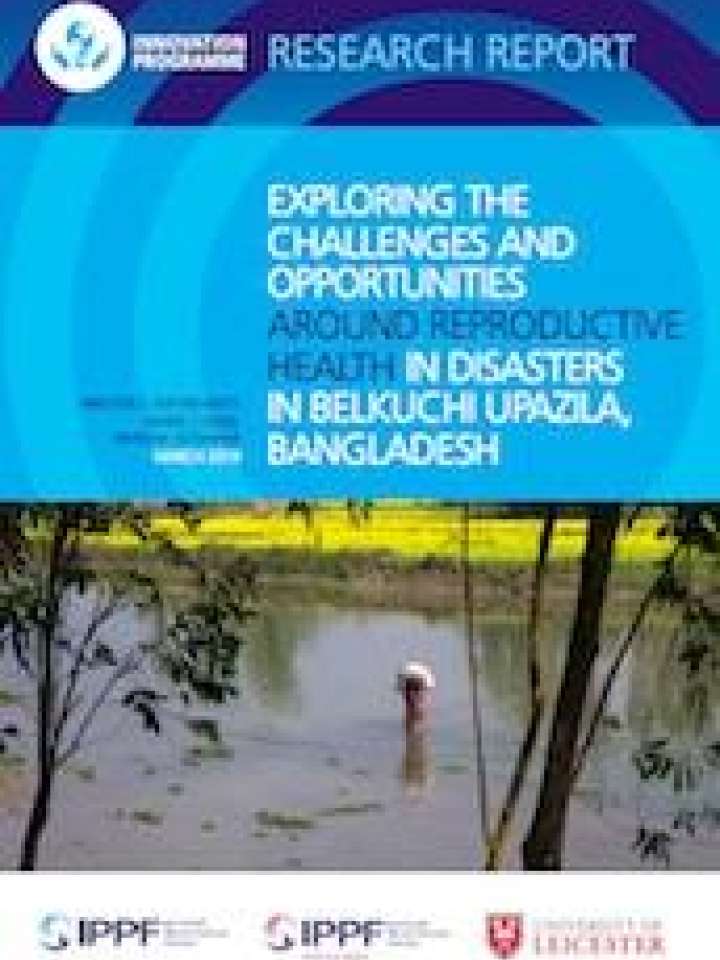Exploring the challenges and opportunities around reproductive health in disasters in Belkuchi Upazila, Bangladesh
The world is facing stronger and longer disasters, protracted complex emergencies, conflicts and epidemics. These crises can expose weaknesses in health systems, with particularly serious consequences for women and girls in need of reproductive health care. To improve the quality and availability of post‑abortion care during a flood, the University of Leicester and International Planned Parenthood Federation South Asia Region, in collaboration with the Government of Bangladesh, developed and measured the impact of an integrated intervention package called RHCC. The RHCC was first tested in the flood-prone locale of Belkuchi in Bangladesh.
The RHCC has three components:
- pre‑positioning UNFPA’s Inter‑Agency Reproductive Health Kit 8 prior to flooding;
- capacity building of health workers; and
- community awareness raising.
This intervention, the first of its kind, introduced the Reproductive Health Kit 8 in three primary health care facilities in Belkuchi during a 2017 flood. The Kit is used during disasters to manage miscarriage and post-abortion care, and consists of: medicines, renewable medical supplies, stationary and treatment guidelines, and medical equipment.
RHCC directly benefited over 200 women; increased the skills of trained nurses, family welfare visitors and other health workers who oversee 173,097 women in Belkuchi; improved the quality of life for clients of the Kits; changed practices in the delivery of the Government of Bangladesh’s national family planning programme on menstrual regulation and post-abortion care in Belkuchi; and led to the development of behaviour change communication posters and context-specific tools for the implementation of the Kit, as well as other materials.
Explore further
